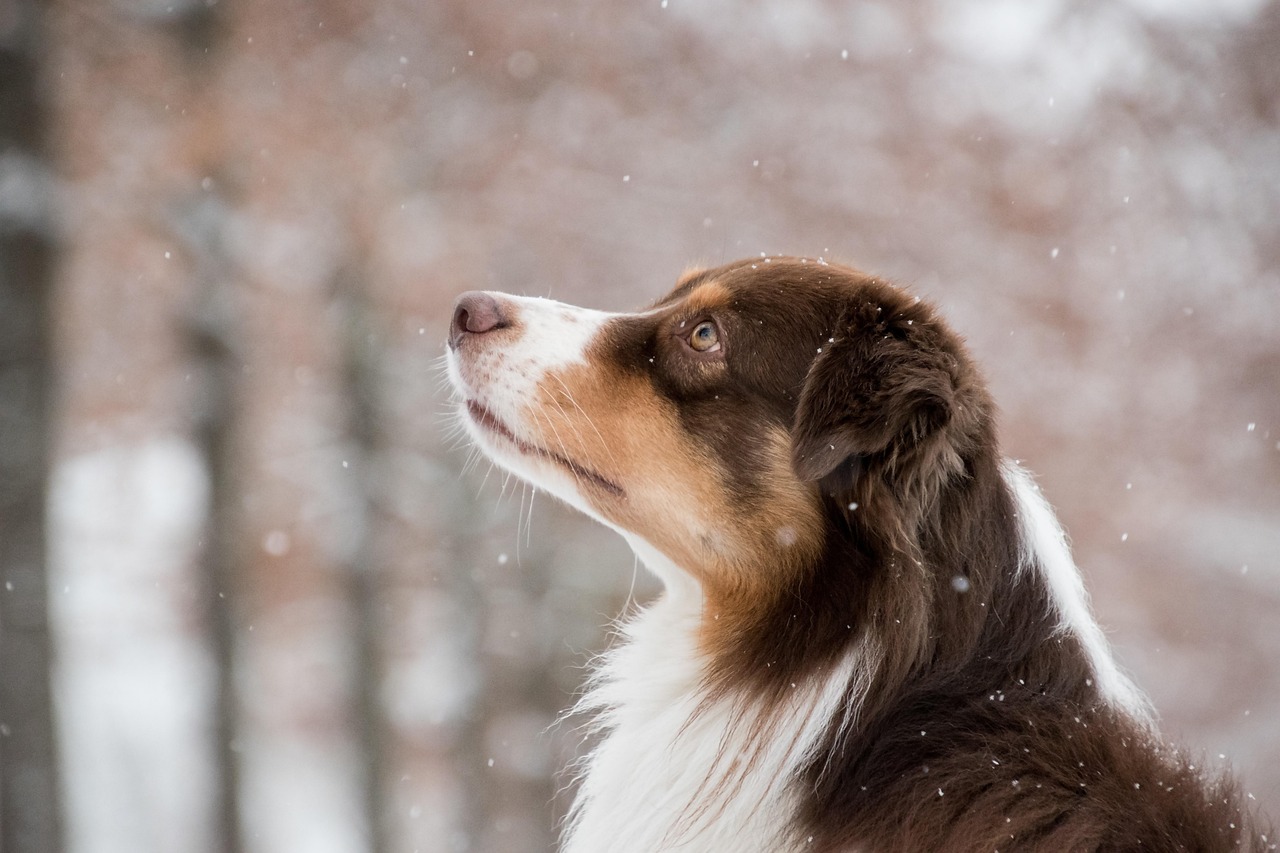K-State veterinarian offers cold weather care tips to keep pets safe this winter
 K-State veterinarian Susan Nelson offers tips for caring for pets in cold weather to make sure they stay healthy throughout the season.
K-State veterinarian Susan Nelson offers tips for caring for pets in cold weather to make sure they stay healthy throughout the season.
 By Audrey Hambright
By Audrey Hambright
College of Veterinary Medicine Marketing
Wednesday, Feb. 19, 2025
MANHATTAN — As winter settles in with freezing temperatures and snowfall, pet owners need to take extra precautions to keep their furry friends safe and warm. Kansas State University's Susan Nelson, clinical professor and veterinarian in the Hill's Pet Health and Nutrition Center, shares essential cold weather care tips to ensure pets stay healthy throughout the season.
Pets should be brought inside when temperatures drop, especially those unaccustomed to cold weather and very young or senior animals, Nelson said. For dogs with thick coats, consider placing them in a cooler room or insulated garage to prevent overheating. Gradually acclimate pets to indoor temperatures with short visits before extended stays.
Some pets may feel anxious indoors. Using a crate or carrier can ease this transition. Ensure easy access to food and water and place nervous pets in a quiet, secure area. If anxiety persists, consult your veterinarian about potential calming options.
Pets that remain outdoors require proper shelter.
"Dog houses should be snug to retain heat, with the entrance facing south or west to block the wind," Nelson said. "Clean straw or hay provides better insulation than blankets, which quickly lose their effectiveness when trampled. Outdoor cats also benefit from a warm, sheltered area."
Check outdoor water bowls frequently to prevent freezing, or use a heated water bowl. Nelson said pets living outside may need more calories to maintain body heat during cold spells.
Short-haired dogs benefit from sweaters made of cotton, fleece or natural fibers. Avoid sweaters with small, decorative elements that can be chewed off and ingested. After walks on salted or chemically treated surfaces, rinse pets' paws to prevent irritation or toxic ingestion. Booties can also protect paws from ice balls and harsh chemicals.
"Young, senior and arthritic pets are more prone to cold-related issues like hypothermia," Nelson said. "Keep very young and very old pets in warm, cushioned areas indoors. Speak with your veterinarian about pain management and therapeutic diets for pets with osteoarthritis."
Nelson also advised to be aware of the following hidden dangers:
• Car engines: Outdoor cats may seek warmth on car engines. Bang the hood or honk the horn before starting the vehicle.
• Antifreeze: Even a small amount of antifreeze is toxic to pets. Clean up spills immediately and opt for pet-safe products containing propylene glycol.
• Frostbite: Ears, paws and noses are susceptible to frostbite. Limit outdoor exposure in extreme cold and consult your veterinarian if you suspect frostbite.
With preparation and care, Nelson said pet owners can help their companions stay safe and comfortable during winter's chill.
For more information on cold weather pet care, contact the Hill's Pet Health and Nutrition Center at the K-State Veterinary Health Center.
###
Get K-State news in your inbox
Subscribe to receive K-State news directly to your inbox every Monday.